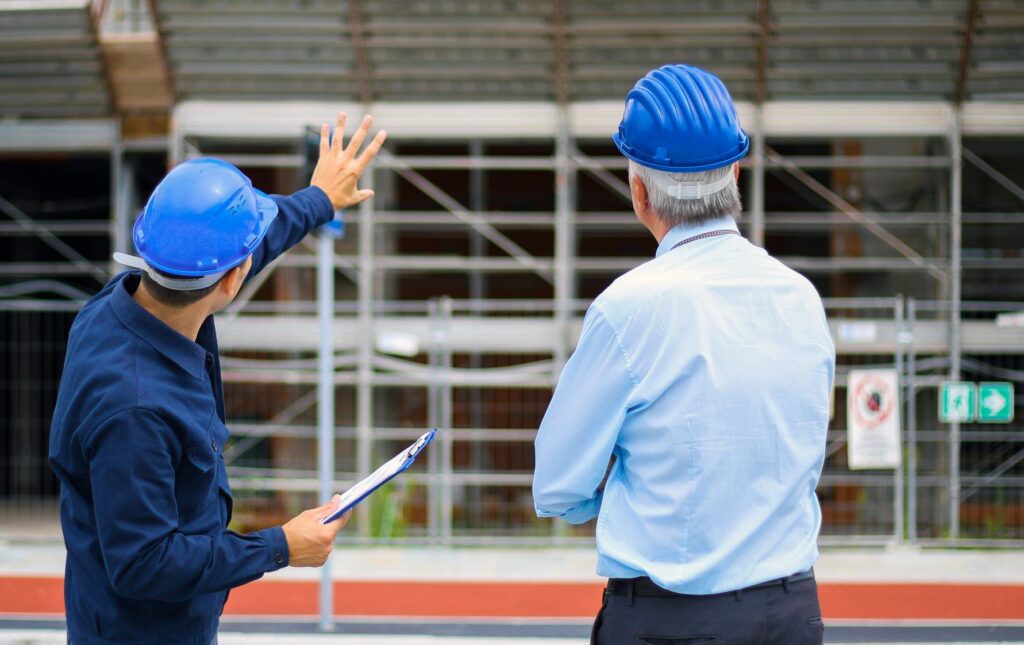
How Engineering Peer Reviews Can Help Reduce Risk
What to Look for When Hiring an Independent Expert
Mistakes happen. In the best-case scenario, we apologize and move on. But when it comes to mistakes on the job, whether it be in healthcare, education, law or engineering, a mistake can be costly.
Various industries have long used peer reviews as a quality control measure to reduce the risk of errors. The process typically involves professionals reviewing each other’s work as a second check. It is meant to check accuracy and review all the requirements.
In academia, a peer review helps prevent the publication of flawed research papers. In the medical profession, an independent autopsy serves as a second check to ensure nothing was overlooked.
Keeping Accountable with Engineering Peer Reviews
In environmental engineering, a peer review is often requested by a city or municipality. They are independent evaluations of project reports, such as reviewing noise assessment reports, performed by another engineering firm within the same design discipline. They are sometimes requested by groups who have an interest in having a third-party verify the accuracy of a study such as a developer, commercial operator, or by parties opposed to a proposed project.
These engineering peer reviews may be conducted for risk management purposes, quality assurance or to ensure compliance with code or other regulations. For example, when considering allowing a new industry to come into a community, a review of the noise assessment reports would ensure the potential industry has considered appropriate and reasonable measures to mitigate noise impact for existing residents.
At Aercoustics, we are often retained for our expertise in noise and vibration to review documents or even provide expert testimony in a hearing or in court. An engineering firm that is awarded a municipal project must compile noise assessment reports or technical documentation to demonstrate that their project is adhering to the guidelines. Our team is then asked to review this documentation and advise if the study satisfies the requirements of the provincial and municipal noise guidelines. In some cases, we might request additional information to complete the review.
Here are a few things to consider when seeking an engineering peer review:
1) Look for someone with a P.Eng. designation:
It’s easy to question the objectivity of a peer review when one firm is being reviewed by a competing firm. Anyone with a Professional Engineer (P.Eng.) designation must follow a strict set of professional ethics and are bound by these ethics. This means they must be respectful, scientific in their approach and impartial. The Professional Standards Committee (PSC) for Professional Engineers Ontario has created a guideline for reviewing another practitioner’s work. The standard we try to uphold is to not require the other consultant to do more or less than we would do ourselves. The firm hired to do the review must stick to the science and remain impartial no matter how heated the dispute.
2) Ensure the firm doing the engineering peer review has expertise in the same discipline:
Finding an engineer to do the review is one thing. Finding someone with expertise and experience in the field you are dealing with is another. Whether it is environmental noise or ground borne vibration, you want an expert with first-hand experience in that field. The more experience they have, the more knowledgeable they are. Clients should look at reputation, response time, and efficiency when hiring a firm for noise assessments and reviews.
3) Find someone who can provide expert testimony if required:
It’s not uncommon for disputes to arise over community planning issues such as rezoning a residential to commercial facility, determining where roads and transit should be built, or even the height of a condo development. When people are unable to resolve these differences or have disputes with their municipal council, it may go before a Local Planning Appeal Tribunal (LPAT) for a hearing. If you think your project may be heading to a hearing, be sure to hire an expert who has this experience and can communicate well and in a non-technical manner as an expert witness.
Depending on the complexity of a project and the information provided, engineering peer reviews can be completed within a couple of weeks.
The engineering peer review process is a valuable tool for municipalities, developers and community members to identify any potential construction issues, ensure it is in compliance with code or other regulations and to mitigate errors or omissions. That second set of eyes or independent review of reports has become the standard within the industry, helping to reduce risk both for the client and the firm.

